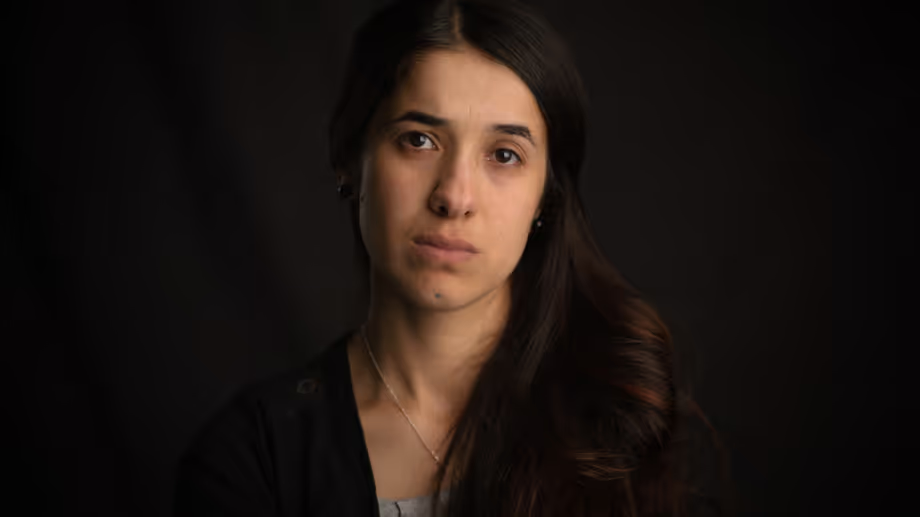On Her Shoulders: Discussion Guide Discussion Prompts: Media
Discussion Prompts: Media

Early in the film, Nadia Murad spells out the kinds of questions she wants to be asked. She says, “The things I want to be asked are: What is the fate of those girls? How young are the girls who are going through this pain? What is the situation of the refugees who I visit in the camps? What is the situation of my people in camps in Kurdistan and Sinjar Mountain? What must be done so Yazidis can have their rights? What must be done so a woman will not be a victim of war?” What kinds of questions do you witness the media asking Murad, and what information seems to interest the media? What do you think about these questions? Do you have questions or find there is information the media should also be focused on that was missing? Why, in your view, is Murad not being asked the kinds of questions she would like to be asked?
One journalist says to Murad, “I am sorry to make you go back to this terrible, terrible time.” How does this comment make you feel? Do you think the role of journalists is to ask subjects to recount their trauma? Why or why not? What do you see as the purpose of asking detailed questions about rape and other forms of trauma? How much detail about rape and other trauma do you think is important to be shared for the public interest? Why or why not?
Over the course of the film, Murad completes many interviews. How do you feel these kinds of questions could impact Nadia and other survivors like her?
Do you see a difference in the way journalists report on rape in the US, for example as part of the #MeToo movement, and in conflict zones like Iraq?
Why do you think Murad continues to participate in interviews and diplomatic ceremonies, even when she seems exhausted? How do these interviews help people think differently about the plight of the Yazidi people? Does anything change as a result of her telling her story?
Do you feel like the reporters captured in the film are giving Nadia Murad a voice? If so, how do you see her ability to shape and articulate her message publicly? Do you feel like they are limiting the impact of her advocacy? In what ways? What could the media be doing differently to support Murad’s work?
Despite the large amount of coverage Murad’s story receives from the media and the international political community, “Years have passed and people still don’t know anything about us,” says a refugee Yazidi woman in the Serres camp in Greece. Why do you think this woman feels that people don’t know anything about the Yazidis?
What should be the result of sharing one’s story through the media? With diplomatic and political leaders? How does story-sharing connect to collective action and social or political change?
How do you think the media should be engaging with Nadia Murad? Who do you see as in control of the narrative?
